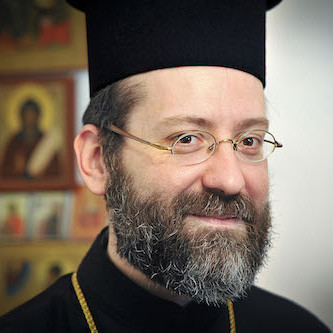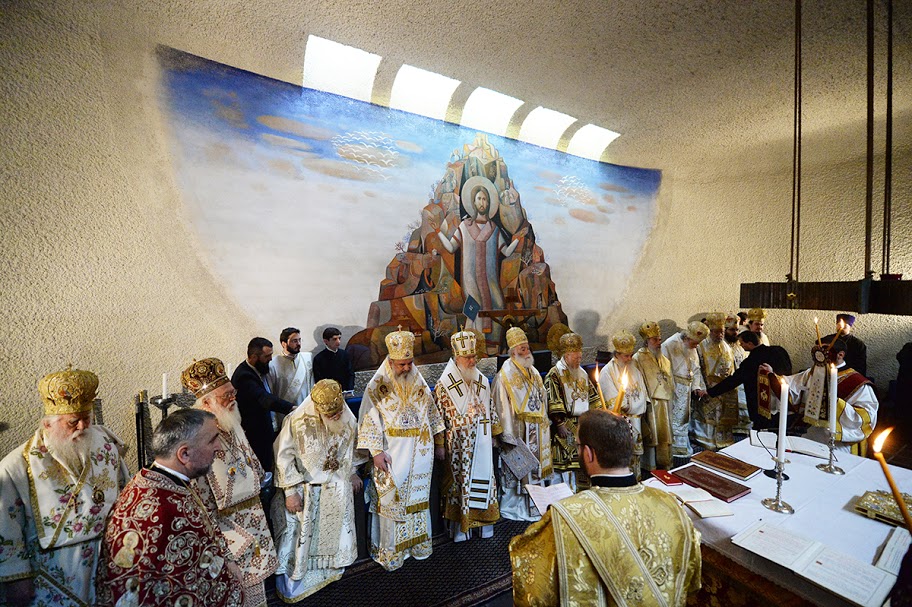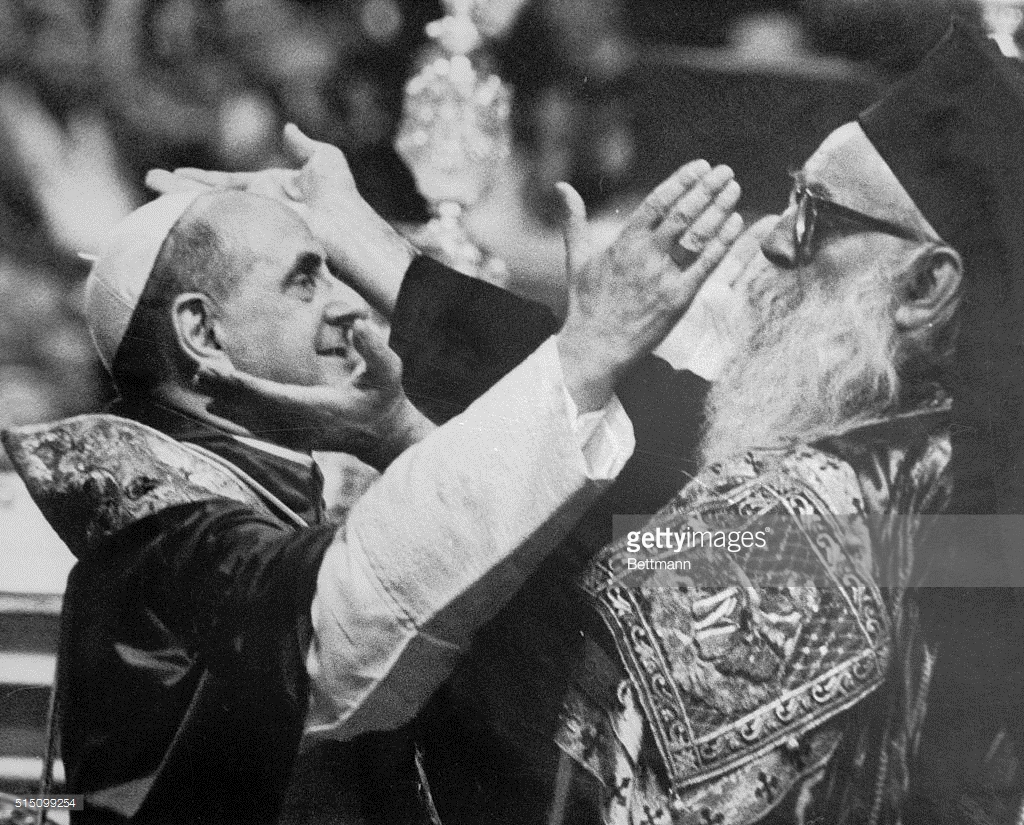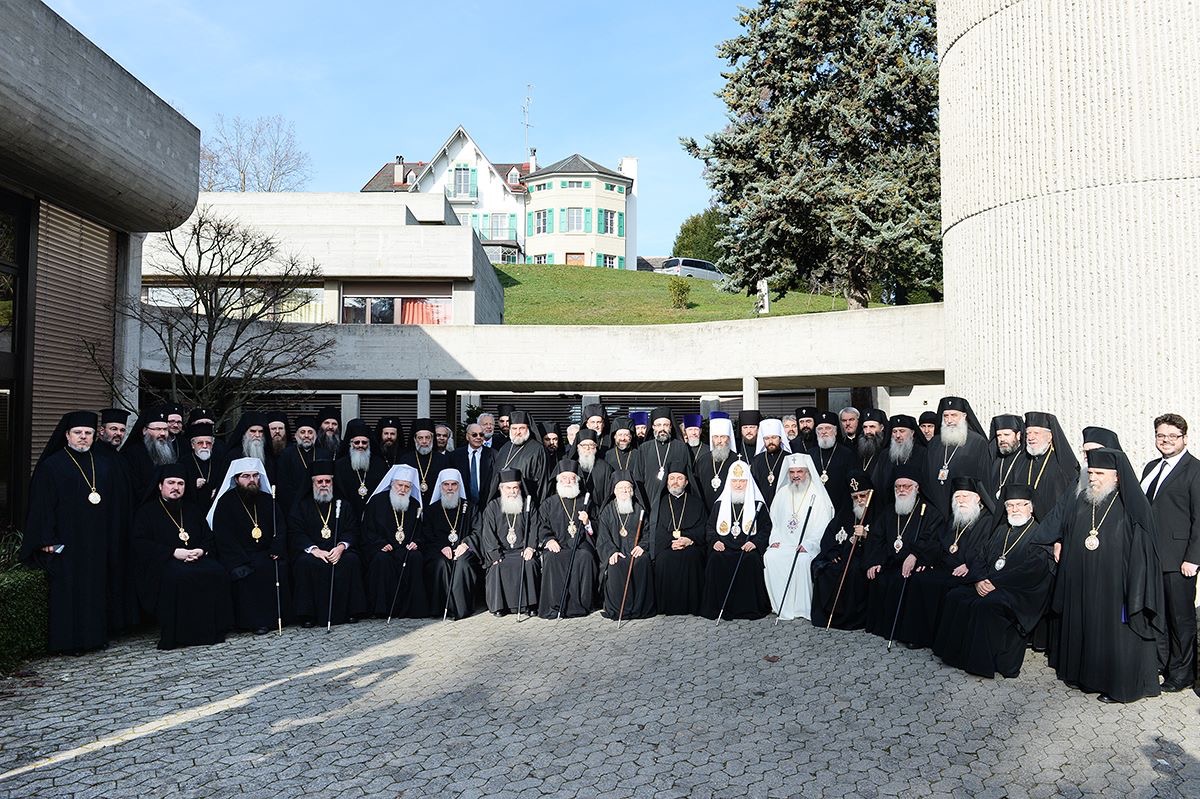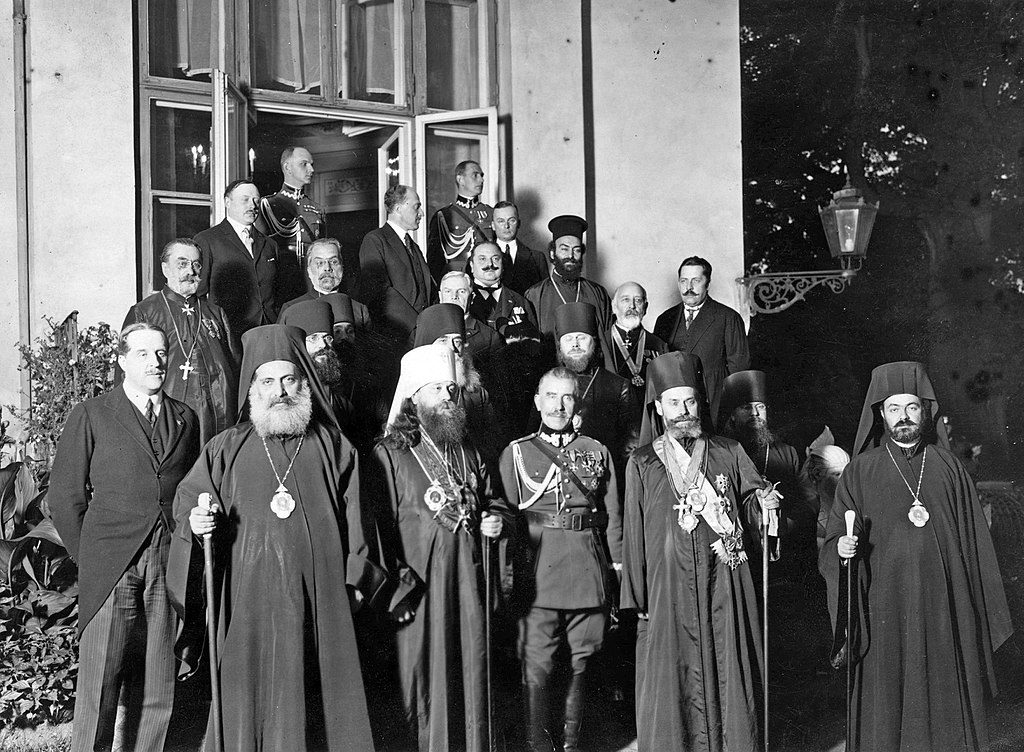
The delegation of the Ecumenical Patriarchate grating autocephaly to the Church of Poland in 1924.
The organisation of the Orthodox Church worldwide has profoundly changed during the 20th century due to the restoration or the proclamation of several autocephalous local Churches. Indeed, some local Churches, that had in the past centuries an honorific patriarchal status because their country had been in the past an independent kingdom from the Byzantine Empire, were restored as autocephalous and patriarchal Churches by the Ecumenical Patriarchate, but always in the limits of concrete state implying concrete geographical borders. This was the case of the Churches of Serbia (1920), Romania (1885 for the restoration of autocephaly, 1925 for the restoration of the patriarchate), Bulgaria (1953) and Georgia (1990). In each of these cases, the major reason for the restoration of their autocephaly and of their patriarchal status was the independence of their state either from the Ottoman empire (in the case of the first three) or from the Russian empire (for the Church of Georgia, in 1917). Although the process of the canonical proclamation of the restoration of their autocephaly by the Ecumenical Patriarchate took in certain cases a long period — in the case of the Church of Georgia, although the restoration of autocephaly was recognised 26 years later by the Church of Russia (in 1943), when both Georgia and Russia were under the Soviet Regime, it took 73 years to be canonically proclaimed by the Ecumenical Patriarchate (in 1990) —, the pleroma of the Orthodox Church did not have any major problem to accept and approve the restoration of the autocephaly and of the patriarchal status of these local Churches since they were considered in high esteem and respected as such by the conscience of the Orthodox Church. Continue reading
